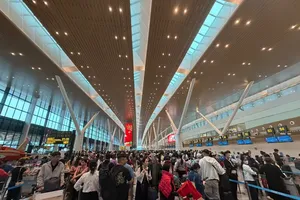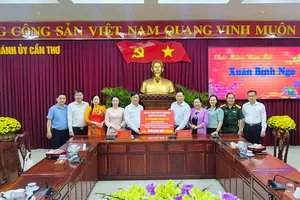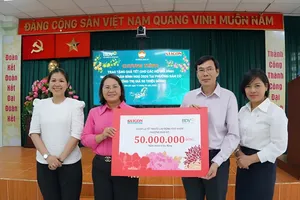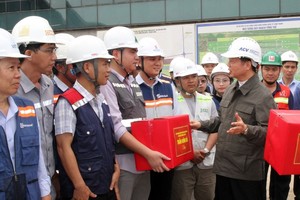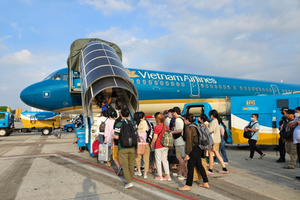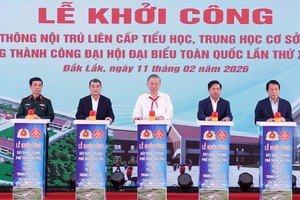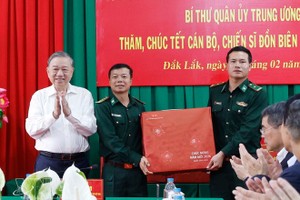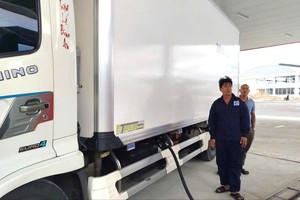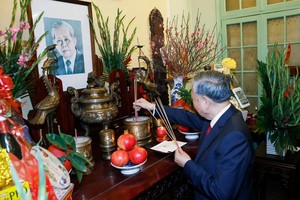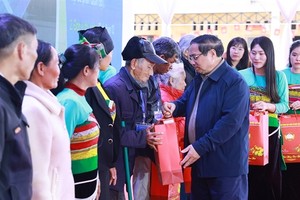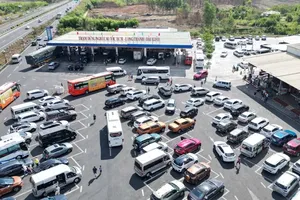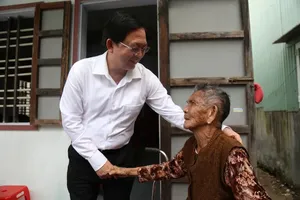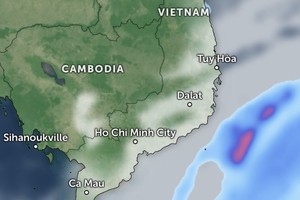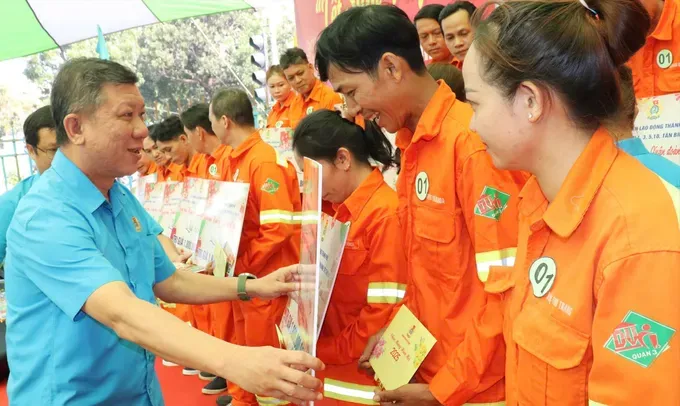
HCMC has been actively soliciting public feedback on the draft amendments to the 2013 Constitution in recent days. Dr. Tran Hai Linh, a member of the Central Committee of the Vietnam Fatherland Front cum Chairman of the Vietnam-Korea Businessmen and Investment Association, expressed his concurrence with the constitutional revisions intended to facilitate the Party’s policy of reorganizing and streamlining the political system’s apparatus.
Dr. Linh emphasized that the amendment and supplementation of Article 10 of the 2013 Constitution, by supplementing the task of the Vietnam Trade Union as the representative of laborers at the national level in labor relations and international relations regarding trade unions, is to suit the context of international economic integration. He anticipates this change will profoundly and positively influence the trade union's role, stature, and operational efficacy in an increasingly interconnected world.
Specifically, enshrining this role in the Constitution will elevate the legal standing of the Vietnam Trade Union, solidifying its status as the sole national-level body representing employees on issues concerning labor, employment, and welfare.
This enhanced status is particularly significant as Vietnam accedes to numerous new-generation free trade agreements, including the Comprehensive and Progressive Agreement for Trans-Pacific Partnership (CPTPP) and the EU-Vietnam Free Trade Agreement (EVFTA), which place strong emphasis on freedom of association and social dialogue.
Formal national recognition grants the trade union a distinct role within tripartite mechanisms involving the State, employers, and employees, empowering proactive negotiation on minimum wages, working conditions, and safety, especially in labor-intensive sectors. Dr. Tran Hai Linh termed this mandate expansion a strategic, proactive reform enhancing the union’s position and effectiveness. He sees it as crucial for protecting employee rights more effectively and modernly, with broader impact beyond integration.
Vice Chairman Nguyen Van Hau of the HCMC Bar Association views this amendment as a necessary update that accurately reflects the realities of integration and the contemporary evolution of labor relations. He believes it will also enable the trade union to more effectively promote sectoral and national bargaining agreements, thereby establishing common standards for working conditions and providing enhanced protection for a larger number of laborers.
In the sphere of international trade union relations, the Vietnam Trade Union is set to become the official unit for Vietnamese laborers’ voices in international forums. This includes participating in the formulation of global labor standards and strengthening cooperation to safeguard the rights of Vietnamese laborers working abroad and foreign employees in Vietnam, alongside learning from international experiences to bolster its own operational capacities.
Offering input on the proposed amendments to Article 10, former Deputy Secretary Vo Thi Dung of the HCMC Party Committee and former Chairwoman of the Vietnam Fatherland Front – HCMC Branch suggested a re-evaluation of the provision that allows the trade union to participate in state management, socio-economic management, as well as in the inspection, examination, and supervision of state agencies and enterprises on matters concerning employee rights and obligations. She proposed that if this provision is retained, it must be clearly defined through specific coordination regulations between the Government and the trade union organization.
Echoing this viewpoint, Lawyer Truong Thi Hoa, Vice Chairwoman of the HCMC Commercial Arbitration Center and member of the Vietnam Fatherland Front – HCMC Branch, advocated for the removal of the phrase “participate in state management”, arguing that trade unions cannot, by their nature, partake in state governance. She cautioned that extending such authority to trade unions could lead to complications, especially if multiple employee representative bodies, not formally trade unions, were to exist.
“If other forms of laborer representation are permitted to engage in state management similarly to trade unions, it would create significant complexity”, she noted. “Conversely, denying them such participation could lead to perceptions of discrimination between official trade unions and other laborer representative bodies.”
Lawyer Nguyen Van Hau also concurred with the proposed amendment to Article 10 but emphasized that the forthcoming (revised) Law on Trade Union must clearly delineate the trade union’s operational mechanisms within its new relationship with the Vietnam Fatherland Front.
This, he argued, should ensure that the trade union maintains its proactive role and more substantively fulfills its functions of representing and protecting the legitimate rights and interests of its members and all employees, particularly in addressing issues arising from increasingly diverse and complex labor relations and disputes in the current era of digital transformation.





